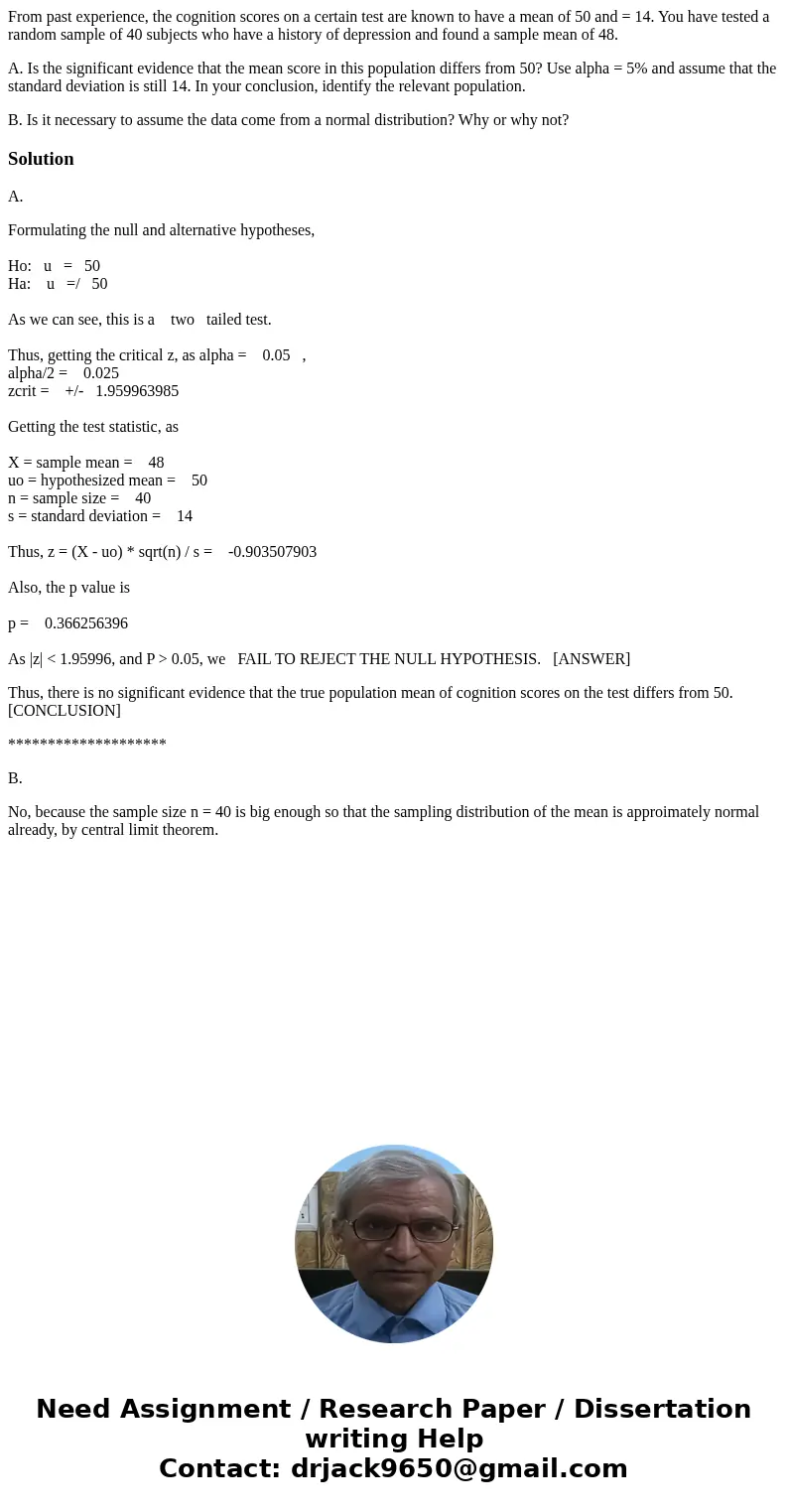From past experience the cognition scores on a certain test
From past experience, the cognition scores on a certain test are known to have a mean of 50 and = 14. You have tested a random sample of 40 subjects who have a history of depression and found a sample mean of 48.
A. Is the significant evidence that the mean score in this population differs from 50? Use alpha = 5% and assume that the standard deviation is still 14. In your conclusion, identify the relevant population.
B. Is it necessary to assume the data come from a normal distribution? Why or why not?
Solution
A.
Formulating the null and alternative hypotheses,
Ho: u = 50
Ha: u =/ 50
As we can see, this is a two tailed test.
Thus, getting the critical z, as alpha = 0.05 ,
alpha/2 = 0.025
zcrit = +/- 1.959963985
Getting the test statistic, as
X = sample mean = 48
uo = hypothesized mean = 50
n = sample size = 40
s = standard deviation = 14
Thus, z = (X - uo) * sqrt(n) / s = -0.903507903
Also, the p value is
p = 0.366256396
As |z| < 1.95996, and P > 0.05, we FAIL TO REJECT THE NULL HYPOTHESIS. [ANSWER]
Thus, there is no significant evidence that the true population mean of cognition scores on the test differs from 50. [CONCLUSION]
********************
B.
No, because the sample size n = 40 is big enough so that the sampling distribution of the mean is approimately normal already, by central limit theorem.

 Homework Sourse
Homework Sourse